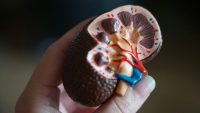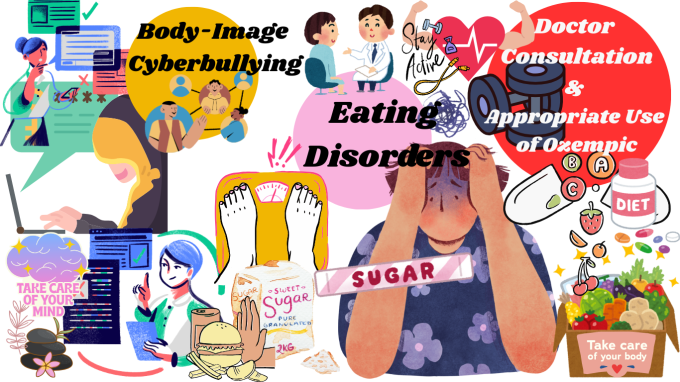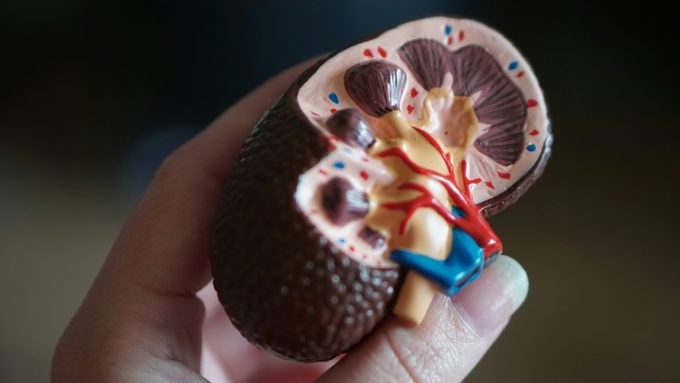What is Menopause?
Menopause is when the period stops completely naturally. This is a clinical diagnosis made retrospectively after 12 months of no period (amenorrhea), spotting or vaginal bleeding. This usually occurs in women aged 45 to 50 with an average age of 51 years. This is interpreted as the near or complete child bearing years.
Perimenopause or Menopause Transition
Perimenopause is the transition period before menopause completely steps in. This occurs after the reproductive years and before meno pause. It usually presents in 2 phases. First is the early transition with periods lasting > 7 days and cycle 40-50 days. Second is the late transition with irregular periods, endocrine changes and symptoms such as hot flashes. Perimenopause can last 2 to 8 years with an average of 4 years and around 47 years. Women can enter premature ovarian failure when they are younger than 40 years and have early menopause between 40 to 45 years.
Causes of Menopause
The main cause for menopause is a natural decline of the estrogen levels and increase levels of follicle stimulating hormones (FSH). In the 40s the period may become lighter or heavier, shorter or longer. Eventually the ovaries stop producing eggs and there will be no period.
Menopause can occur after surgical intervention such as a hysterectomy (removal of the uterus) with removal of the ovaries or removal of the ovaries alone (oophorectomy). This will cause instant menopause which is in contrast to a slow decline in natural menopause.
The ovaries produce the sex hormones needed for the functioning of menstrual cycle, ovulation and pregnancy to occur. The use of chemotherapy and radiation therapy for cancer can cause menopause. About 1 % of women have premature ovarian insufficiency before the age of 40 with the underlying reason being genetic changes or an autoimmune disease.
What are the Symptoms of Menopause and Perimenopause?
Every woman will experience different symptoms. The hallmark symptom is the hot flashes.
During perimenopause the missed period are common which can return to normal. There is risk of getting pregnant during this time. There is a wide constellation of symptoms during menopause.
The most troublesome symptom is the vasomotor called hot flashes or night sweats. This occurs in 80% of women and only 20- 30% tend to seek medical attention.
Hot flashes typically begin as the sudden sensation of heat centered on the upper chest and face that rapidly becomes generalized which can last 2-4 minutes. It is often associated with profuse perspiration and occasionally palpitations, and is sometimes followed by chills, shivering, and a feeling of anxiety. Hot flashes usually occur several times per day or night, however more common at nights. The vasomotor symptoms tend to diminish or cease a few years after onset; in some cases, they can persist up to 20 years. This impacts the quality of life such as sleep, concentration, energy, sexual activity, daily life and have a negative impact on work.
Menopausal women are at risk for depression, sleep disturbances, anxiety, all of which can impact their overall quality of life. Cognitive changes of the brain can occur such as forget fulness, difficulties with word retrieval and brain fog. Genitourinary symptoms of menopause are a collection of symptoms that occur in the vulva, vagina, clitoris, urethra and bladder. Women experience vaginal pain, dryness, decrease lubrication and sexual dysfunction along with urinary symptoms and infection.
Joint aches, pain and breast pain are common also. Menstrual migraine tends to be worse during the menopausal transition due to the fluctuation of the hormones.
What are the Long-term Consequences of Decreased Estrogen?
Due to the decrease in estrogen, there is high risk for bone loss which appears to be highest during the one year before menopause through two years after.
There is risk of cardiovascular disease, increase lipid profile, dementia and osteoarthritis. Body changes such as increase weight from fat and decrease in lean mass. Skin changes that occur are skin aging and wrinkling due to the decrease in the subcutaneous collagen. Menopausal women tend to have higher risk of fracture due to impaired balance.
When to Visit the Specialist?
Women who present with any symptoms of perimenopause or menopause, undergoing pelvic surgery, chemotherapy, radiation, desire fertility or knowledge can visit an obstetrician and gynecologist to have more detail information on this subject.
What Are the Treatment Options Available?
The treatment available depends on the severity of the symptoms and the woman’s preference. There is hormonal therapy and non-hormonal. Menopausal hormonal therapy (MHT) can be estrogen therapy with or without progesterone. The aim of hormonal therapy is to relieve the symptoms especially the hot flashes. The hormonal treatment required will depend on the symptoms the woman presents with and whether or not she has a uterus.
Estrogen therapy comes in different forms such as pills, patches, rings, vaginal cream and dose concentration to provide relief of the vasomotor symptoms. Progesterone therapy is available in pills, injections, intrauterine device (Mirena) and vaginal capsules with variation in the dose concentration. The non-hormonal therapy options are vast. Examples are antidepressant, gabapentin, mindfulness, black cohosh, cognitive behavioral therapy yoga, meditation, acupuncture, deep breathing, massage and hypnosis.
Lifestyle changes and home remedies can aid with the symptoms. These include dressing in layers or wear sleeveless tops and breathable fabrics, lower the room temperature, use cold packs to manage the hot flashes. A water based vaginal lubricant or silicone based or moisturizer and staying sexually active can ease vaginal discomfort. Getting enough sleep is important while avoiding caffeine and alcohol. In addition, maintaining a healthy diet, exercise, the use of Kegels exercise and no smoking are all alternative to managing the symptoms of menopause.
Menopause is a natural part of woman’s life, understanding the progression to the final menstrual period is important for her to know what to expect, when to visit a specialist and what treatment is available to improve her overall quality of life.













